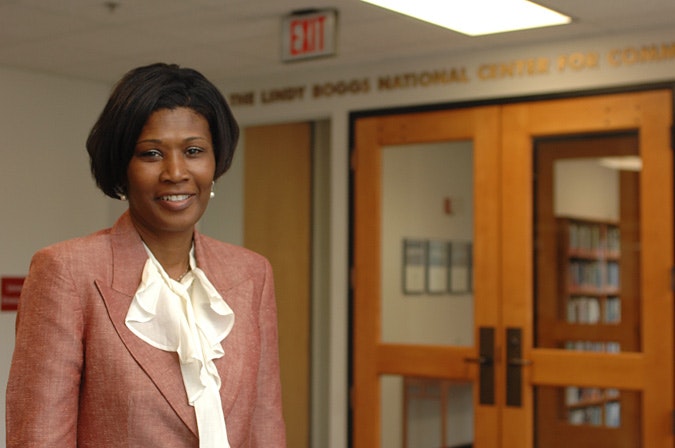The Truth About My Father
By Petrice Sams-Abiodun

A truly educated man is he who has learned in school how to study and in life what to study.
—W. E. B. DuBois
I am a native New Orleanian. The eldest child of a teen mother and a heroin-addicted father. Born in a public hospital, raised in public housing, and educated in the public school system, I am a product of all the decaying public systems we are now working to dismantle or rebuild post-Katrina.
My father’s struggle with addiction and habitual incarceration had a profound influence on my life. And in spite of his shortcomings, he was a good daddy. He epitomized the culture of New Orleans, family, food, friends, and festivities. He would always take me and my younger siblings to second line events, and boy could he kick it (dance)!
He was well-read and articulate. He was a “street intellectual.” Everyone in the neighborhood knew him, because he was charismatic and kept a newspaper rolled up in his back pocket. The Today Show was the morning mandate in our household, and we were always quizzed about current events. He was always very honest with me about the “ways of the street,” and it is from him that I received my most important lessons about being a young woman.
Despite the warm memories, there are also many difficult ones. Like knowing that when the housing inspector came around, there were two things that we were not to acknowledge that were a part of our household: my father and our dog. Memories of my father being in and out of jail all of my life are profound. I remember the trips my mother, sisters, brother, and I made to Angola State Penitentiary to visit my dad. I was so ashamed and confused. My sister a year younger than me was angry. And my youngest sister and brother, who at the time were little more than babies, would cry that they wanted their daddy back after each visit.
Throughout all these life experiences I always wanted to understand why. I remember saying as a little girl around eight years old that I would never marry or have children, because I thought that the reason that poor women could not get ahead was because they were in dysfunctional relationships and had too many children. What I did not understand was that there were so many other external forces that created the social order and reality that I and others were experiencing.
As the determined little “womanish” girl that my father, family, and neighbors labeled me, I set out to learn and understand the truth about my community. I vigorously pursued my studies, but I came to realize that I also had a truth to be told: a truth that there are too many people outside of poor communities who define who we are and what we need. I saw through my graduate education and professional experience the powerful role that research has in defining how poor African American families are viewed. This research has a profound impact on many of the policies and programs that exist today affecting black families and communities.
In my studies, I also found that there is a major disjuncture in the literature on the attachment, role, and contributions of low-income men to family and community. As a result, I suggest that these men are both the heart and demise of many of the families and children that we propose to support through our programs and policies. These men who are our sons, uncles, brothers, cousins, and fathers can both contribute to—and pull on—the resources of already fragile families.
Two years into my graduate studies, my dad returned to prison as a very ill man and died there on Labor Day 2000, despite my efforts to have him released while in hospice care. However, he assured me he was at peace; and today his legacy lives on through my work to use research and social justice to empower and aid traditionally marginalized and oppressed people.
Petrice Sams-Abiodun is executive director for the Lindy Boggs National Center for Community Literacy at Loyola University and board member of Women In Fatherhood, a grantee of the Open Society Foundations.